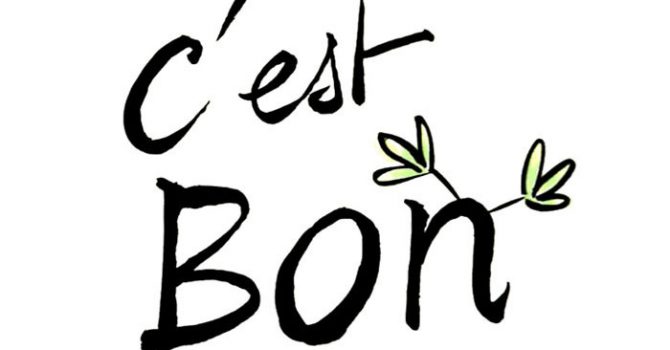The Most Embarrassing And Common Mistakes in French to Avoid
Learning a new language often takes you out your comfort zone. There are many embarrassing and common mistakes in French that are easy to avoid.
In today's blog, I have listed the most common mistakes in French to avoid in order to help you overcome these for good!
1 The embarrassing common mistakes in French you should avoid
the embarassing mistakes
Je suis chaud(e)
Il fait chaud : it’s hot ( weather )
C’est chaud : it’s hot (when touching something)
Je suis chaud(e) : I am horny
In English it would sound ridiculous (odd ?) to say " I have hot" as opposed to "I'm hot" on a sweltering day. But in French saying " Je suis chaud " could land you in a pickle, as it actually have a sexual meaning!
Je suis plein(e)
Plein (e) : full (for an object)
Pleine : pregnant for an animal (la lionne est pleine)
Another common mistake in French is to hear an Anglophone say after a good dinner: "Ce dîner est excellent et maintenant, je suis plein(e) ". Je suis plein(e) means "I am pregnant "(and is only actually used for animals, not humans). Instead he should say "Ce dîner est excellent, j’ai vraiment bien dîné "
Des préservatifs
Un préservatif : condom
Des conservateurs : conservatives
In French, "un préservatif" means a condom. If you would like to say that "there are preservatives in the sweets" you should say instead "Il y a des conservateurs dans les bonbons"
verb visiter
2 Tricky verbs
Visiter / rendre visite
When learning French, English-speakers need to be careful not to mix these two verbs. "Visiter" is used for a place, such as a monument or a city or a country "J’ai visité le Maroc" whereas "Rendre visite » or "Aller voir " is used when talking about people " Demain je vais voir des amis".
Manquer
Another common mistake in French is the verb manquer. The verb "to miss" has several meanings. Manquer can be used in a sense of failure : "J’ai manqué le métro" ( i missed the train) or an emotion if you miss something or someone "Londres me manques " which means ‘I miss London ’and not "London misses me", which would be the literal translation.
You must therefore avoid the word by word translation and inverse the order of the sentence. Another example : "Tu me manques " is translated to"I miss you ". In French, the one who is missed is the subject, and the one who misses (the other one) is the object.
3 Words that sound the same in English (but are not)
Faux-amis causes many common mistakes when learning French. There are thousands of French words that look like English words, and while many of them are true cognates ( they mean the same thing in both languages), a lot of them are false cognates, with a different meaning.
Confus vs Confused
"Je suis confus" : I am embarrassed
"Ce n’est pas clair" : it is confusing
At the question "Vous comprenez?" ' (Do you understand") some English speakers might answer: "Non, je suis confus". "But in French this means "I am embarrassed", not confused. They should say instead: "Ce n'est pas très clair pour moi " (it’s not very clear for me).
Actuellement vs Actually
Actuellement : currently
En fait : actually
Some English-speakers usually say "Actuellement, je pense que ce n’est pas vrai" which is not appropriate. They should say "En fait, je pense que ce n’est pas vrai". En fait means Actually, which is a Faux-ami of Actuellement.
Actuellement means now at the present time. A right use of actuellement could be : "Elle travaille actuellement dans une banque" translated by «"She currently works in a bank "
Assister vs Assist
Aider quelqu’un : to assist someone to do something
Assister à : to attend an event, to be present
Assister means to attend an event : "Ce soir j’assiste à un concert de jazz " (tonight I attend a Jazz concert ). I often hear sentences with a wrong use of the verb assister such as : "Je dois assister mon frère pour les devoirs ", while the correct use should be : "Je dois aider mon frère à faire ses devoirs" (I must assist my brother to do his homework).
Librairie vs Library
Une librairie : bookshop
Une bibliothèque : library Une librairie is a bookshop "J’achète un livre à la librairie " (I buy a book in a bookshop) while library in French is "une bibliothèque". "Elle travaille à la bibliothèque chaque jour " (she works each day at the library)
Éventuellement vs Eventually
Eventuellement : possibly
Finalement : eventually
Éventuellement means possibly, if need be, or even: «"Tu peux éventuellement proposer cette option" (You can possibly offer this option) Eventually indicates that an action will occur later, it can be translated by finalement : "He eventually completed the exam " (il a finalement terminé l’examen).
Monnaie vs Money
La monnaie : change, coin
L’argent : change La monnaie refers to currency, coin, or change "Désolé je n’ai pas de monnaie ", (Sorry I have no change) and money is the general term for argent "l a beaucoup d’argent " (he has a lot of money). Now you know that you should no longer say «"Mon frère a des problèmes de monnaie" but say instead "Mon frère a des problèmes d’argent " (My brother had money problems).
4 Confusing and common expressions
tricky expression in french
C’est bon, c’est bien
When learning French, another couple of tricky phrases for French learners as they often confuse the two. "C’est bon" refers to food or to accept a meeting : "le chocolat, c’est bon" (the chocolate is good), "un cours de français demain, oui c’est bon" ( a French lesson tomorrow, OK for me ).
C’est bienmeans approval, or your personal opinion on something "Vous aimez les cours de français?". "Oui c’est bien " (you like French lessons ? Yes, it’s good).
C'est bon- Get rid of good, using bon for everything. For instance you should say «"j’aime le cours de français, c’est bien " and not " j’aime le cours de français, c’est bon ".
C’est la raison pour laquelle
I often hear « "C’est la raison pourquoi" which is the literal translation of this is the reason why . Unfortunately, this is not correct in French. Students should use instead the compound relative pronoun pour laquelle/lequel. " J'ai mal à la tête, c’est la raison pour laquelle je reste chez moi " ( I have a headache, this is the reason why I stay home) and not "J’ai mal à la tête, c’est la raison pourquoi je reste à la maison ".
If you wish to learn more about the common mistakes in French you can easily avoid, have a look at the website About French.com
Learn French in Paris with personalized French lessons in Paris
If you wish to learn, improve, reinforce your French in Paris with personalized on a one-to-one basis French à La Carte offer customized French private lessons in Paris to match your needs, learning abilities, your schedule, and your location in Paris.
We offer several options: French for beginners, French conversation, French for children, Business French
In addition to your lessons, if you decide to learn French in real life situation such as going in a bakery or in a food market to practise your speaking skills with your tutor, we also offer French immersion in Paris.
More insight about French language and French culture on ourblog, Twitter, Facebook




